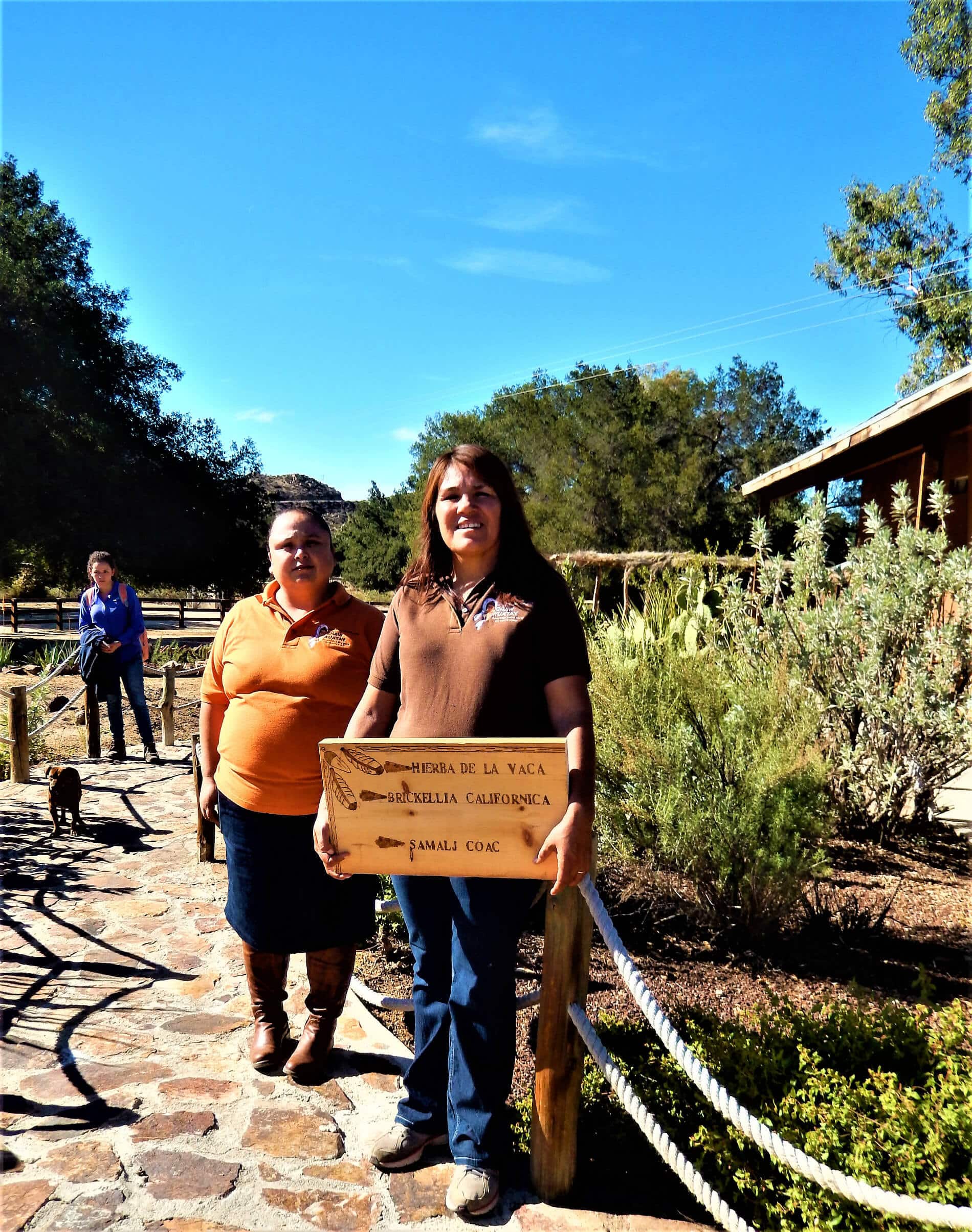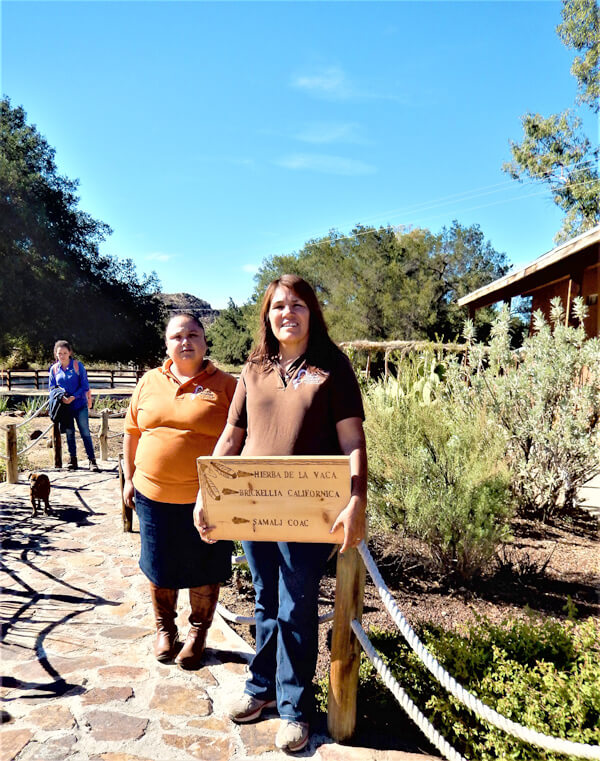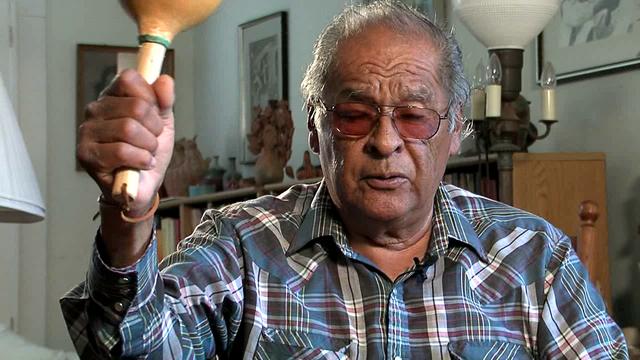The Kumiai–also known as the Kumeyaay, Tipai-Ipai and formerly, Diegueño–are a branch of the Yuman Peoples of North America whose ancestral lands included Southern California, southwestern Arizona, and northwestern Baja California, Mexico.
Evidence of human settlement in Kumeyaay territory goes back at least 12,000 years. 7000 BCE marked the emergence of two cultural traditions: the California Coast and Valley tradition and the Desert tradition. Historic Tipai-Ipai emerged around 1000 CE; however, others say that Kumeyaay people have lived in San Diego for 12,000 years. At the time of European contact, Kumeyaay comprised several autonomous bands with 30 patrilineal, clans.
Spaniards entered Tipai-Ipai territory in the late 18th century, bringing with them non-native, invasive weeds, and domestic animals, which causes dramatic changes to the local environment. Under the Spanish Mission system, bands living near Mission San Diego de Alcalá, established in 1769, were called Diegueños. After Mexico took over the lands from Spain, they secularized the missions in 1834, and Ipai and Tipais lost their lands and essentially became serfs.
From 1870 to 1910, American settlers seized the best farming and grazing lands. In 1875, President Ulysses Grant created reservations in the area, and additional lands were placed under trust patent status after the passage of the 1891 Act for the Relief of Mission Indians. The reservations tended to be small and lack adequate water supplies.
Kumeyaay people supported themselves by farming and agricultural wage labor; however, 20-year drought in the mid-20 century crippled the region’s dry farming economy. For their common welfare, several reservations formed the non-profit Kumeyaay, Inc.
The combined Kumeyaay population today is estimated at 3000–3200 people.
Adapted from Wikipedia’s article on the Kumeyaay Peoples




